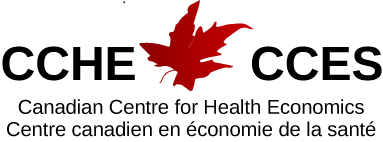Friday, November 27: 10 AM – 12 PM
Speaker: Sisira Sarma, Western University
Title: Family Physician Remuneration Schemes and Referrals to Specialists: Evidence from Ontario
As part of the Canadian Centre for Health Economics (CCHE) Friday Health Economics Series, we welcome Professor Sisira Sarma this Friday November 27th, 10am – 12pm in HS100 (Health Sciences Building 155 College Street). Professor Sarma will explore “Family Physician Remuneration Schemes and Referrals to Specialists: Evidence from Ontario, Canada”.

Sisira Sarma is an Assistant Professor of Health Economics in the Department of Epidemiology & Biostatistics at the Schulich School of Medicine & Dentistry at The University of Western Ontario, and an Adjunct Scientist at the Institute for Clinical Evaluative Sciences. His current research spans three areas: the economics of primary healthcare, economics of the social and built environment determinants of health and cost-effectiveness analysis.
Abstract
Understanding how physicians respond to incentives arising from remuneration schemes is a central issue in the health economics literature. One understudied aspect of the response of family physicians is referrals to specialists, yet specialist visits are more costly to the health care system compared to those of family physicians. Although the theoretical literature demonstrates that, under plausible assumptions, capitation payments increase referrals to specialists, the empirical evidence on this question is limited and mixed. We fill this gap by studying the impact of referrals to specialists and the costs of such referrals of family physicians in Ontario who switched from a blended fee-for-service to a blended capitation payment system. The data for this study come from several Ontario health administrative databases from 2005-2013 held at the Institute for Clinical Evaluative Sciences. Our empirical strategy relies on propensity score matching and fixed-effects regression models to account for observed and unobserved differences between the switchers and non-switchers. We find that the number of referrals to specialists is about six percentage points higher in the blended capitation model compared to the blended fee-for-service. This result is robust to the use of unique patient referrals. The cost of referrals is about eight percentage points higher in the blended capitation model relative to the blended fee-for-service. Our results suggest that excessive referrals and costs of referrals in Ontario’s blended capitation payment relative to the blended fee-for-service are consistent with the theoretical literature.
Fall 2015 Schedule: http://
Join the CCHE Health Economics seminar series mailing list by sending an e-mail to: cche@utoronto.ca
Related Events

Sign up for IHPME Connect.
Keep up to date with IHPME’s News & Research, Events & Program, Recognition, e-newsletter.
Subscribe to Connect Newsletter
Get in Contact
Communications
Marielle Boutin
Email Address: ihpme.communications@utoronto.ca

